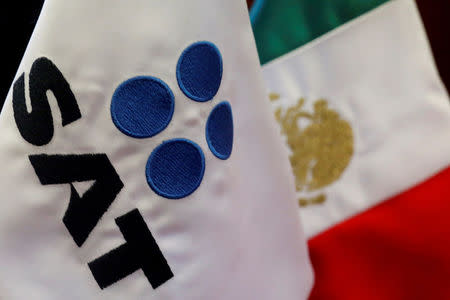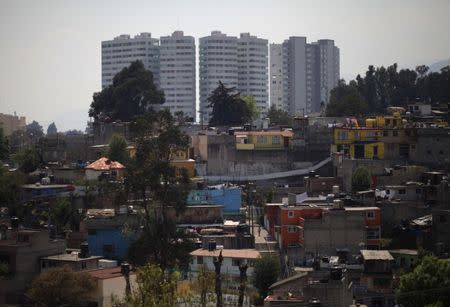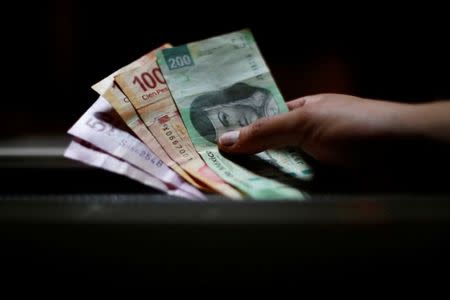Exclusive: Anti-money laundering group blasts Mexico in draft report
By Michael O'Boyle MEXICO CITY (Reuters) - Mexican prosecutors are failing to systematically punish money launderers and tax authorities are too lax with potential drug money fronts such as real estate and luxury goods firms, according to a draft report on Mexico's efforts to fight illicit finance. The report by the Financial Action Task Force (FATF), an international organization that sets global standards for fighting illicit finance, highlights the tiny dents made by Mexican prosecutors in the financial networks of drug gangs and corrupt officials. Mexico has been slipping in convictions, data in the report shows. The country already lagged regional peers such as Colombia and Brazil, both of which have made strides in setting up independent prosecutors. "Money laundering is not investigated and prosecuted in a proactive and systematic fashion," said the draft of the report, sections of which were seen by Reuters. Its publication is set for early January. The finance ministry and attorney general's office did not respond to a request for comment for this story. Mexico is the top source of illegal drugs to the United States and both countries' authorities have been criticized by civil society groups for leaving drug gang finances largely intact. The more than 200-page report commends efforts to clean up the Mexican banking sector after U.S. investigations in the mid-2000s showed global banks processed billions of dollars in drug gang cash. Officials say tighter regulations flushed much illicit money from the banking system. However, the report says Mexican tax authorities did not do enough to monitor businesses outside the financial sector used for money laundering, such as real estate. Since 2014, Mexico's tax authority has had powers to audit more than 64,000 businesses considered high risk. But it has only allocated 16 people to probe those companies and since 2014 they have audited just 118, or less than 0.2 percent, the draft noted. The lack of a national registry of shareholders has made it difficult for authorities to follow the complex money trails used by drug gangs and corrupt officials to hide ill-gotten funds, the report said. The draft seen by Reuters was hammered out at closed-door meetings in Buenos Aires last month. An earlier draft prepared by a team of officials led by the International Monetary Fund was harsher, according to two sources familiar with the issue. The IMF did not respond to a request for comment. The earlier draft noted poor co-ordination between financial officials, prosecutors and security forces within Mexico, and flagged weak co-operation with the United States, the sources said. However, Mexican officials convinced the assessors to tone down the report, they said. During the Argentina meetings, Mexico's government said in a statement that the FATF report identified areas for improvement on its efforts to combat money laundering but "affirms that there is good co-ordination between authorities and extensive international co-operation." LOW SEIZURES, FEW CONVICTIONS Mexico is making little headway in seizing illicit cash, according to the government's own estimates. Data in the report provided by Mexico shows the country seized just $32.5 million in 2016. That represents less than 0.1 percent of the $58.5 billion of illicit revenues the government estimates is generated by organized crime annually. Also, fewer investigations than in previous years were based on information from the financial intelligence unit (FIU), a part of the finance ministry, the report notes. Setting up sophisticated FIUs that target major operations is key to effectively fighting money laundering, compared to cases that stem from routine police and customs busts. Yet only 8 percent of investigations in Mexico last year were based on FIU reports, according to data in the FATF report. That is down from around an average of 15 percent in recent years. Mexico is at the bottom of major countries in terms of its efforts to fight money laundering, said Edgardo Buscaglia, an expert on organized crime at Columbia University. While convictions based on FIU data have grown more than fourfold in Brazil and nearly sixfold in Colombia since 2000, Mexico has seen the number drop, according to data compiled by Buscaglia that runs through 2015. "The financial intelligence unit is not engaging the criminal networks," Buscaglia said. "They are not passing the right kind of data." (Additional reporting by Stefanie Eschenbacher; Editing by Daniel Flynn and Rosalba O'Brien)



